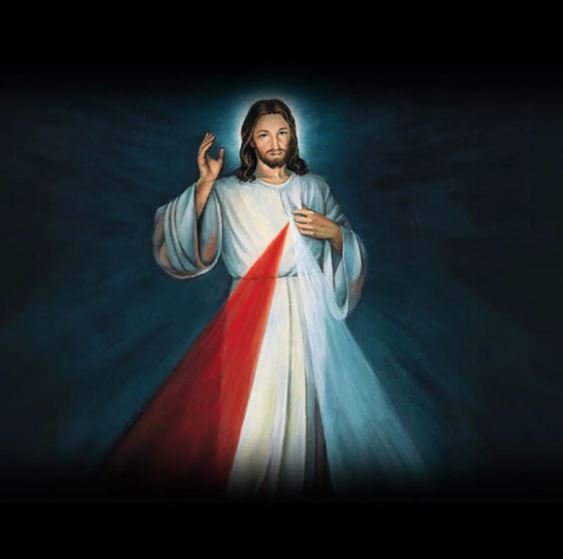Imagine standing on the shore of a vast ocean, the waves gently lapping at your feet. Each wave is a testament to the relentless rhythm of nature, a symbol of unending continuity.
Now, imagine each wave as an act of divine mercy, washing over humanity since the dawn of time.
This is the essence of Divine Mercy Sunday, a day that stands as a beacon in the Christian calendar.
The genesis of Divine Mercy Sunday can be traced back to a humble Polish nun named Sister Faustina Kowalska. In the 1930s, she reported visions and messages from Jesus Christ that emphasized His divine mercy and love for all humanity.
These revelations were like seeds planted in fertile soil – they grew into what we now know as Divine Mercy Sunday. It’s akin to a gardener nurturing a plant from seedling to full bloom – with faith and patience, Sister Faustina’s experiences blossomed into an annual celebration recognized by millions worldwide.
The day Christ chose, according to Saint Faustina, is the first Sunday after Easter, and Jesus asked that the Feast of the Divine Mercy be preceded by a Novena to the Divine Mercy to begin on Good Friday.
But why should this matter to you?
Think about it like this: Imagine you’re walking through a dense forest with no clear path ahead.
Suddenly, you see a beam of light piercing through the foliage – that’s Divine Mercy.
It’s not just another date on the calendar – it’s an opportunity for spiritual renewal and growth.
For newbies in faith or advanced believers alike, understanding Divine Mercy Sunday is like learning to swim in that vast ocean we talked about earlier. At first, it might seem overwhelming but remember – every stroke takes you closer to your destination.
Here are some tips on how you can immerse yourself more deeply in this day:
1) Understand its significance: Just as knowing the history behind any event adds depth to its appreciation, understanding Divine Mercy Sunday roots in Sister Faustina’s visions will enrich your experience.
2) Participate actively: Attend mass, pray the Divine Mercy Chaplet, or even organize a small gathering with friends and family to talk the theme of mercy. It’s like joining a community garden – the more you contribute, the more you’ll reap.
3) Reflect on divine mercy in your life: Consider moments when you’ve experienced forgiveness or compassion. This is akin to standing on that ocean shore and acknowledging each wave as it washes over you.
4) Extend mercy to others: As Mother Teresa once said, “If we really want to love, we must learn how to forgive.” Be that wave of mercy for someone else.
Remember, Divine Mercy Sunday is not about celebrating an event from the past – it’s about bringing those values into our present lives. It’s about recognizing that ocean of divine mercy and learning how to swim in it – not just for one day but every day.
So as we approach the next Divine Mercy Sunday, I invite you to dive into this ocean. Let the waves of divine mercy wash over you, renewing your spirit and strengthening your faith.
And who knows?
You might just find yourself becoming a beacon of that divine light piercing through someone else’s dense forest.


